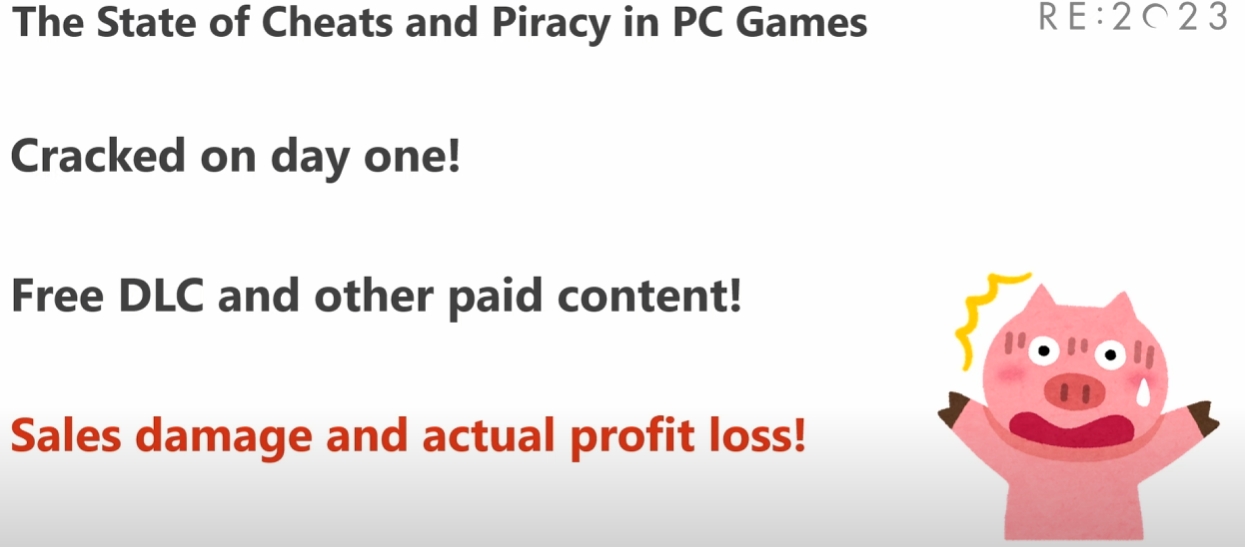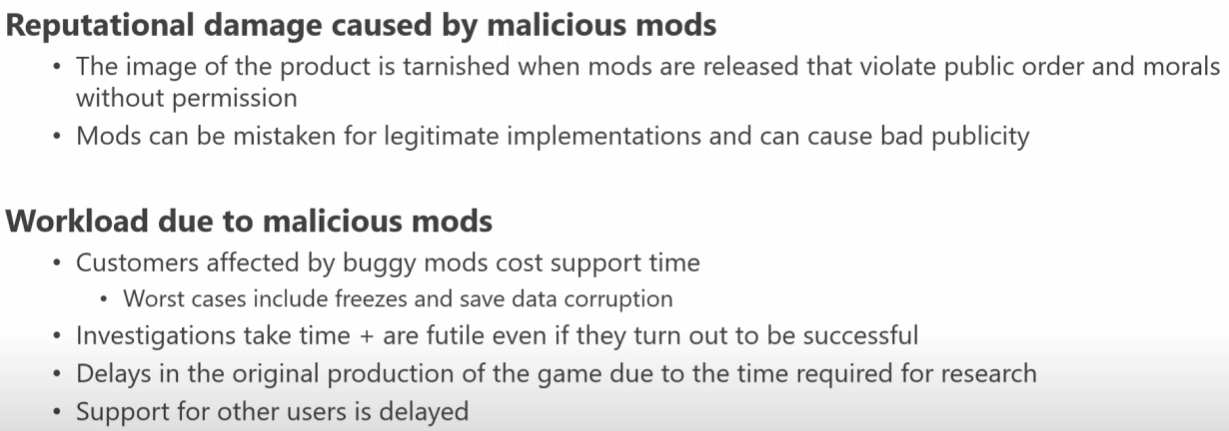Capcom has detailed its stance on video game piracy and measures it plans to take to tackle this issue. The Japanese publisher also directly compared the mods that players create for its titles on PC to cheats, seeing them as a threat to its reputation and finances.

Image: a mod for Street Fighter 6 (via Nexus Mods)
In a recent video on its R&D channel on YouTube, Capcom claimed that if its titles don’t have anti-cheat and anti-piracy solutions, this will lead to “sales damage and actual profit loss” because games will be cracked on day one.
However, the company acknowledged that it is almost impossible to estimate the exact amount of damage. “We can only speculate on the cost of cheats and piracy, but we know that if we don’t take measures, the damage is greater,” the presentation says.

It is worth noting that the video caused a negative reaction from users. At the moment of writing, it has 770 dislikes with only 44 likes on YouTube.

Capcom believes that game mods = cheats
The most controversial part of the video is that Capcom equates community-created mods to cheats: “Mods that are not officially supported by the game are impossible to distinguish from cheat tools, implementation-wise.”
Although the company thinks the majority of mods can have a positive impact on the product, some of them may cause:
- Reputational damage — Capcom believes that offensive mods that “violate public order and morals without permission” can affect branding and tarnish the image of the product;
- Workload issues — some mods contain bugs that can cause freezes and corrupt save files, leading to customer support having a “difficult time investigating the issue” and delaying support for users who are not using mods;
- Negative impact on production — Capcom claims that increased customer support load could affect development costs that were “supposed to be used for creating high-quality games” and eventually result in lower sales and loss of revenue.

What does Capcom say about its in-house anti-piracy technology?
Right now, Capcom is using Denuvo, a popular (and controversial) anti-tamper technology, to protect its PC releases from piracy. But the company plans to move forward by developing in-house solutions to avoid the limitations of third-party tools.
For example, the Denuvo license is not permanent, meaning the publisher only pays for a certain period. That’s why players sometimes see DRM being removed from the game months or even years after its initial launch.
Capcom wants to have its proprietary technology, described as a “silver bulltet”, to better control all aspects of protecting its games from pirates and modders (or, as it calls them, “cheaters”).

The company says this in-house tool will have the following advantages:
- Full understanding of how such software works, allowing developers to implement only those features that are “truly necessary”;
- Cutting costs allocated to paying developers of third-party solutions;
- Understanding how to protect vulnerable areas of its own games that are not protected at the moment.
In the meantime, Capcom has no plans to abandon the use of third-party DRM tools. Instead, it wants to combine them with its in-house soultion, which will “protect other parts of the system” not covered by software like Denuvo. So this is about taking “multi-layered measuers” that will be harder to crack.
The in-house protection solution will be integrated into Capcom’s RE Engine, which will also be upgraded to the next-gen REX version. The so-called “Security Module” will allow the company to immediately implement anti-piracy and anti-cheats tools in any game. “Even if a module is breached, the next title can strenghten it more,” the explanation reads.
